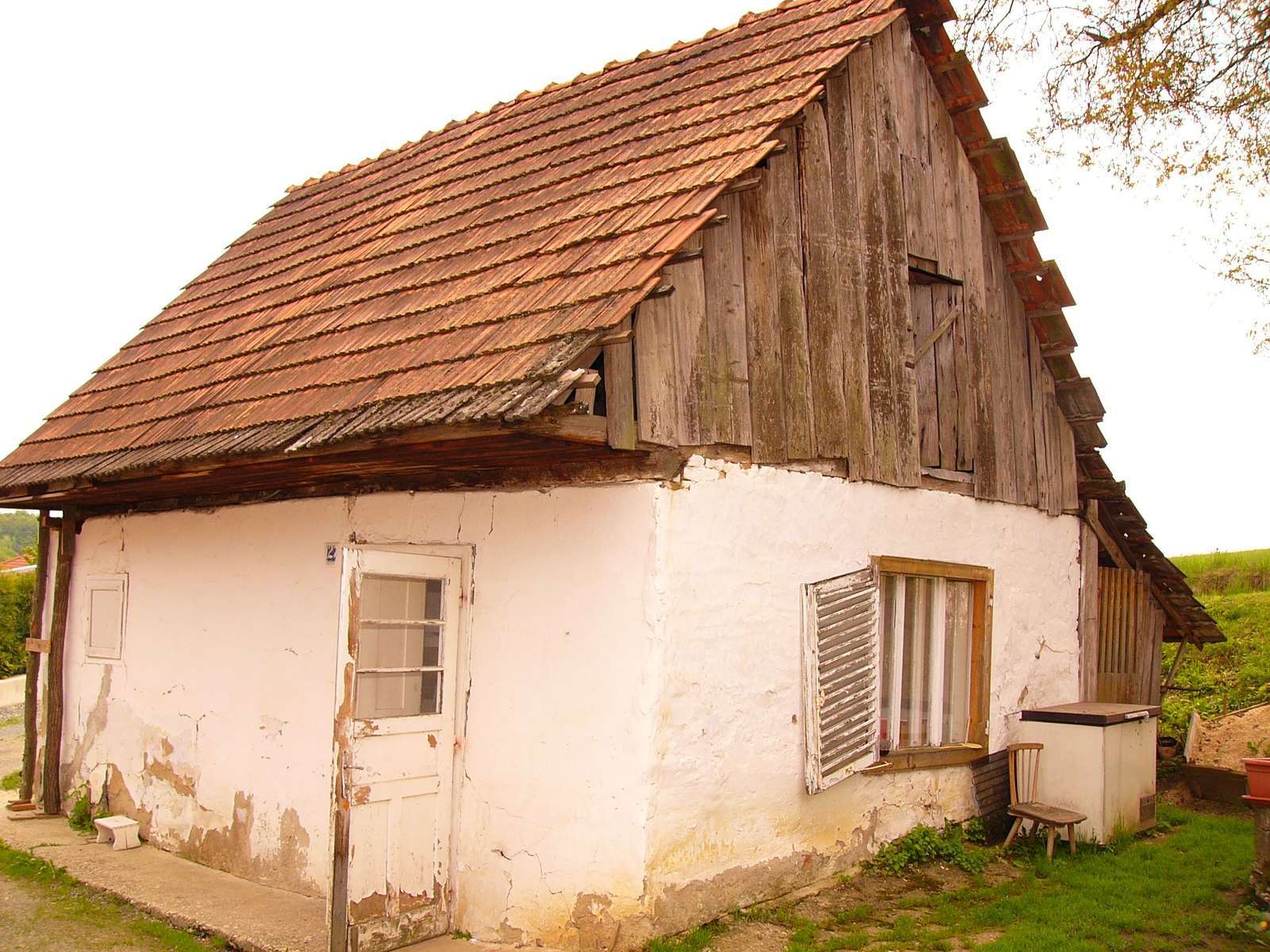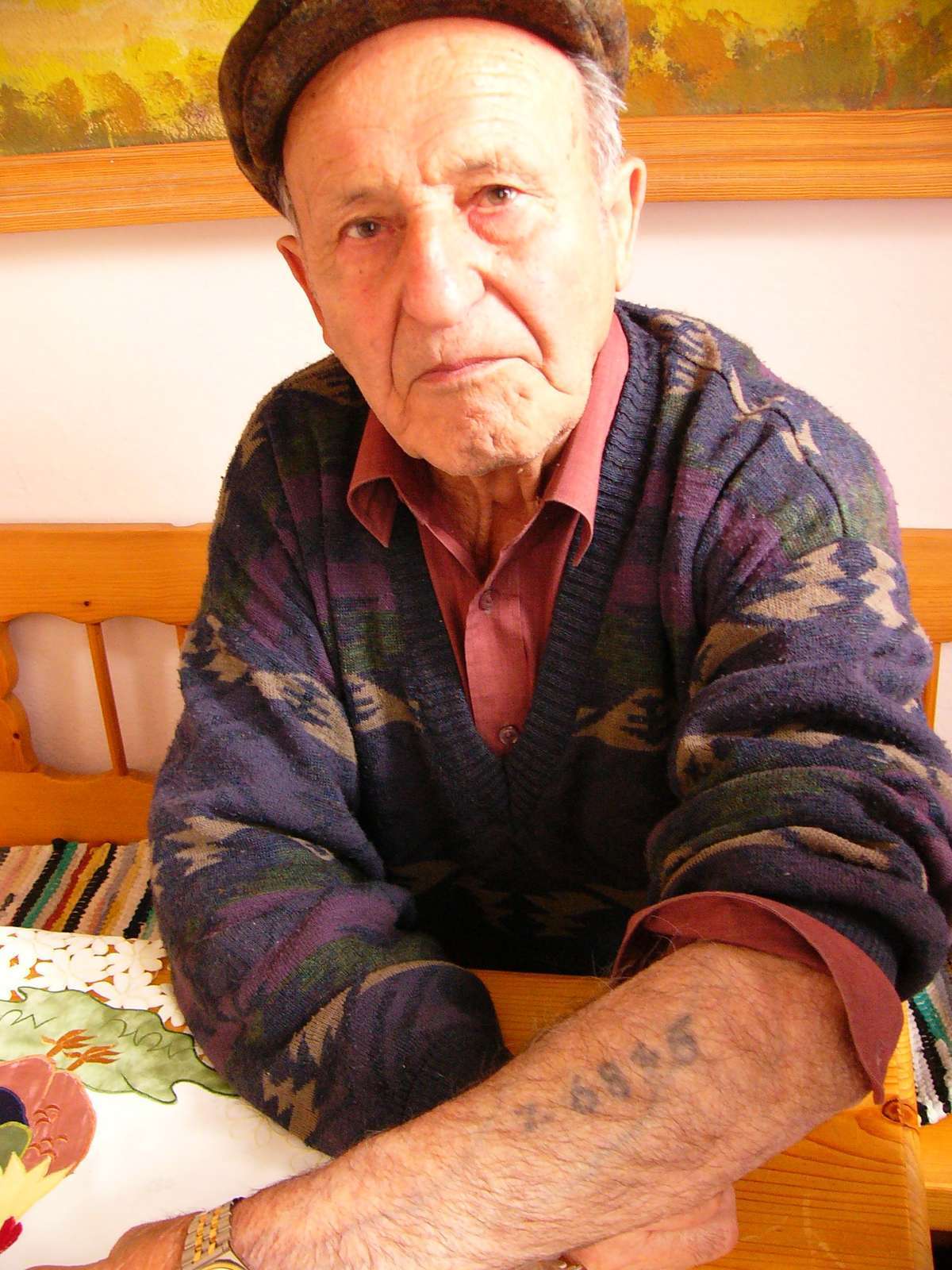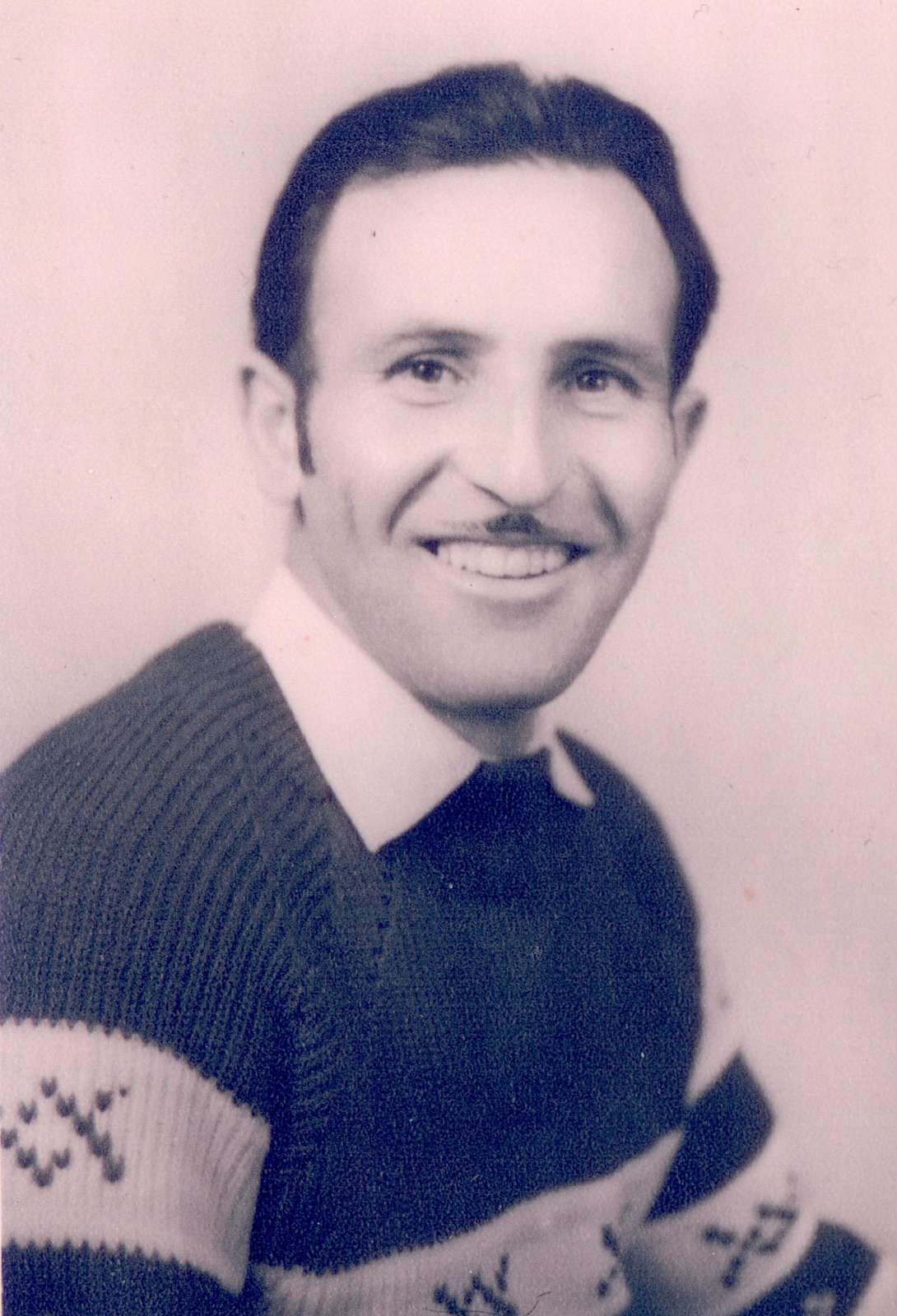Anton Müller
My number was Z6835
Anton Müller was born into a Roma family in Zahling/Burgenland on 27th March 1924, the second of five children. From the ages of seven to 14, he worked for neighboring farmers in exchange for board and lodging. From July 1938, all Burgenland Roma, including Anton Müller, had to do forced labor. In 1943, the entire family was then deported to Auschwitz.
In 1944, Mr. Müller was sent, via Ravensbrück, to Mauthausen, where he survived to see the liberation. Anton Müller's father, a sister and her children, and a brother, his wife and his children did not survive the National Socialist era.
The following excerpt from the life story of Mr. Müller is taken from an interview in the contemporary witness documentation "Mri Historija. Life stories of the Burgenland Roma" by the association "Roma Service".
The children and young people went to school and I worked for the farmers. Some of them did seasonal work. […] Then I went music-making in Heiligenkreuz. I learned to play with my father's bandmaster in Heiligenkreuz. I played music from the age of eight until I was 14. I was always working – I made music, worked [for the farmers] and I worked in road construction and on the boring tower. The houses in Zahling, where I worked, are still standing. But the old people have already died. I was only able to go to school for four years, because Hitler was already close by. We no longer dared. So I just had to miss out. […] Things weren't so good at home. Our parents were pleased that I had made my life with the farmers and lodged there. […] I was taken from my job with the farmers and brought there [to Königsdorf for forced labor] and employed as a so called water boy, as an informant. The SS men who were supervising there all came from the local area. […]
After the deportation of the first Roma families from Zahling, the family fled to Styria and went into hiding at a farm in the mountains. However, the men of the family were arrested a short time later. As the mother of Anton Müller was not a Roma and possessed an Ariernachweis [1], he was finally freed again. He was called up to the Reich Labor Service [2] but after six months, he was able to return home.
When I returned from the Reich Labor Service, they very soon arrested us. We were deported to Fürstenfeld in a private truck. Once there, we were crammed into cattle wagons and deported straight to Auschwitz. That was in spring 1943. My mother didn't have to go, as she was considered an "aryan", but she didn't want to leave us. My father tried to stop her, but it didn't work. […] They kept saying to us, first in Fürstenfeld, then on the train, that we would get work in Poland, earn money and have a nice life. The younger among us would work, the older would be cared for. This is what they promised us. But when I saw how they were beating people with [rubber truncheons] I knew, of course, that they had lied to us.
When we arrived in Birkenau and the people got off the train, some had to go there, others over there; [older] women here, younger women there. The younger ones joined the workforce, the older ones were sent to the gas chambers. That's how it was. Only the workforce made it into the camp at all. Three days later, I was tattooed. My number was Z6835. They started with number 1 and I was number 6835. […] As soon as you got your number, things got better, because the number meant that you could work. And those who didn't get a number were sent to the gas chambers. We had the same numbers next to the black patches. [3] The black patches were for gypsies [4]; the yellow-red star for Jews [5]; red was for the political prisoners; green for career criminals and purple for bible scholars [6] […] There were several areas in Birkenau: one for the gypsies, one for the Jews and so on. They were in double rows and the camp road ran between them. The children and women were also accommodated in separate barracks. But the women who had very young children and babies were put on the ramp with the elderly. My sister also had three children, including a baby, and they incinerated her. […]
If you got sick – suppose you had a temperature of 40 degrees – it was cleverer to work. If you went to hospital, you were gone. You were just given an injection, generally water, and you were dead. Even if you were half dead, you had to go to work. As soon as you got sick, lots of people couldn't work any more, then you didn't have a chance. […]
I worked on constructing the sewers, digging by hand and laying pipes. I also took part in the so called de-lousing. When a new transport arrived, everything was searched through and we had to throw the jewelry into big containers. Where it went, I don't know, but by evening it was already gone. Then they [the newcomers] were sent into the gas room, they received soap and a hand towel and never emerged again. If we had said anything, warned them, we would have been sent in ourselves. 15,000 Hungarian Jews were incinerated in one night, from the train straight to the crematorium. I don't want to think about it. […]
When we had to leave the camp at temperatures of minus 30 degrees, several people just remained lying there. They just froze to death on the spot. Just froze to death. But those who knew how to help themselves a bit took cement sacks which they had used in their work, cut a hole in them and wore them as clothes. If they had caught you, they would have given a beating immediately. And you wouldn't believe how warm paper is – warmer than clothing. […]
I was beaten like an animal, they struck me in the teeth with their rifle butts; another time I [was struck] 25 times. In Birkenau, the men's camp was separated from the women's camp, where my mother was, by a fence. Once she threw me bread over from her side. Just as I wanted to collect the bread, I was caught. An SS man beat me with his "ox's tail" – that's what they called the whip. I had to count along, but I only got to five. For fourteen days, I was barely able to walk and could only lie on my stomach. Despite this, I still had to go to work. […]
At the time of the liberation, I was in Mauthausen. […] Before I was deported to Mauthausen, I spent 14 days in the concentration camp Ravensbrück. Ravensbrück was a stop on the way from Birkenau to Mauthausen. I was with the Russian prisoners and we had to chop wood in the forest. […] In Ravensbrück, the men were castrated. Those who let themselves be castrated were released, but I didn't allow them to castrate me. Then I was sent to Mauthausen. […] Thank goodness I didn't have to work in the quarry. I was one of five prisoners who was able to play an instrument and was assigned to the camp band. […] Our band had to accompany the workers on their way out – the quarry was about 150 meters away – and play until they had all gone down. Every day. In the evening we picked them up again at 7. […] During the day, I worked in the camp: cleaning the streets and the toilets, emptying the dustbins, cutting hair, anything that came up really. That was our work. In Mauthausen, we were much better off than we were in Auschwitz, because we musicians, and everyone who worked in the camp got a spoonful of soup as a supplement. That's how I was able to stay alive. […]
When I was freed, I thought that the world was my oyster. But many people only died after the liberation. We were able to go where we wanted and do as we pleased. No one could say anything to us. Everywhere glasses [containing food] were being opened and eaten – many got dysentery and died. But I went home […] with an old Roma and he said to me, "If you want to go home with me, then do as I say. Don't eat anything fatty! We will eat dry bread, maybe a little more, and that is how you will stay healthy." And so we went home. I only weighed 35 kilos [7]. […]
After the liberation by the Americans and a month-long stay in a military hospital, in fall 1945, Anton Müller returned to Zahling. Mr. Müller found the Russian soldiers there – including a few Roma – to be very reasonable and supportive of the Roma. He was able to build a new life for himself. To spare his children from being disadvantaged, he changed his surname. Anton Müller didn't speak of his experiences in the concentration camps for many years.
After the war, people in the area questioned me. They were curious, but I didn't say a word. They wouldn't have believed me anyway. Why tell someone, who then goes and tells everyone that he has been made a fool of?
First publication of this article in: Renate S. Meissner on behalf of the National Fund (Ed.): Lives Remembered. Life Stories of Victims of National Socialism. Vienna, 2010, pages 238-243.




